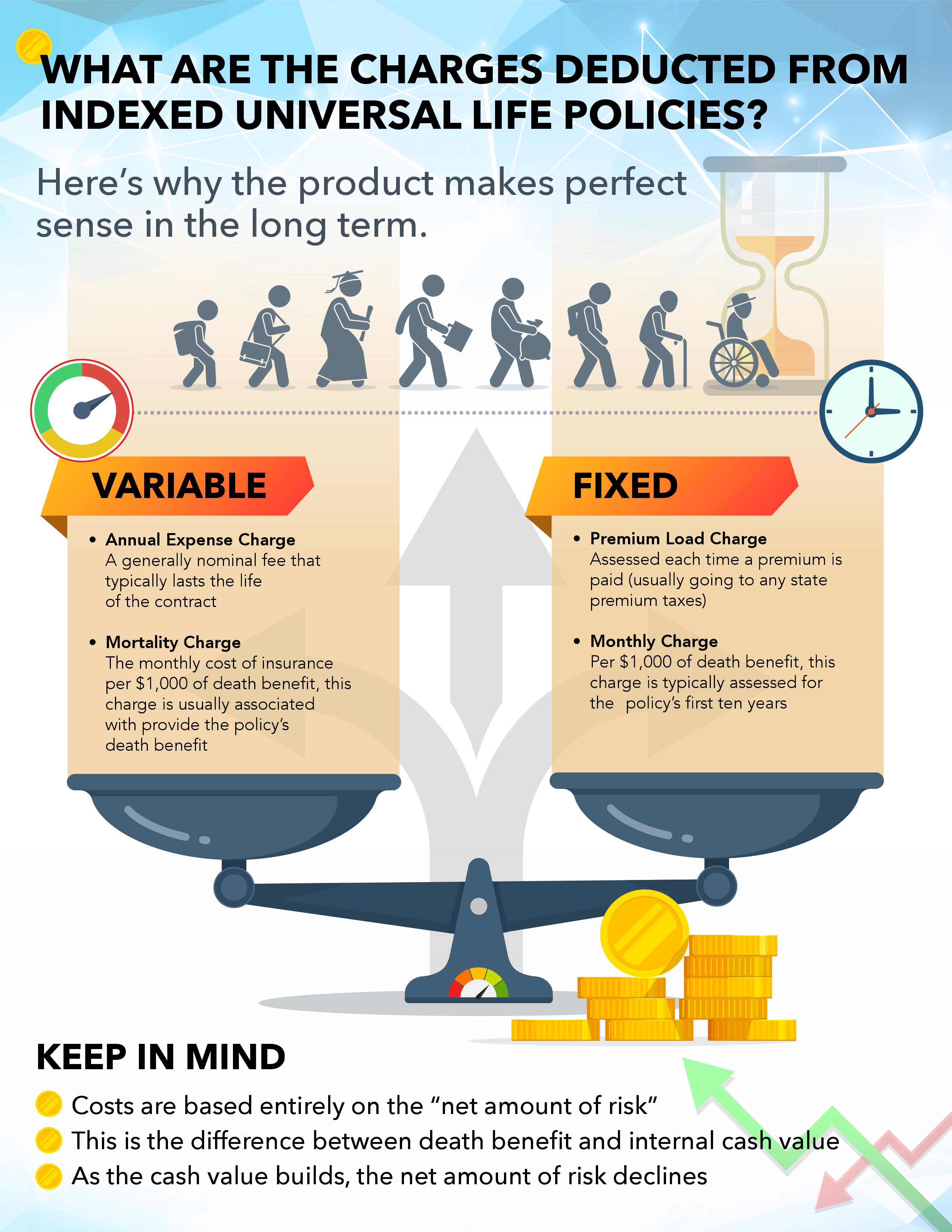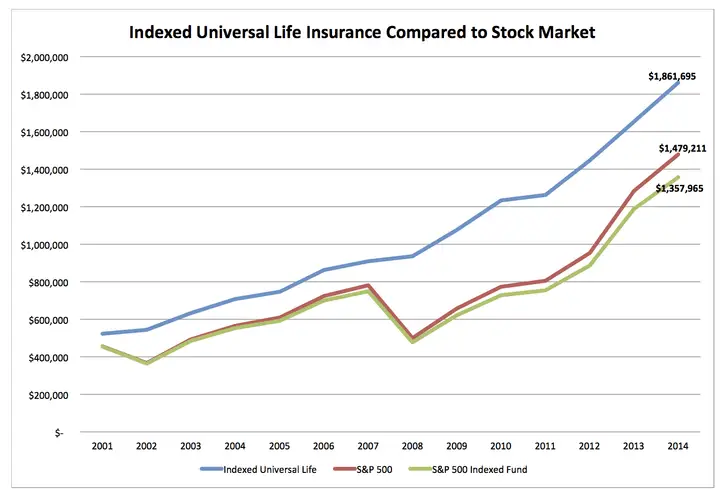All Categories
Featured
Table of Contents
1), typically in an effort to defeat their category standards. This is a straw man argument, and one IUL individuals love to make. Do they compare the IUL to something like the Lead Overall Securities Market Fund Admiral Show no tons, an expense ratio (EMERGENCY ROOM) of 5 basis factors, a turnover proportion of 4.3%, and an extraordinary tax-efficient document of circulations? No, they compare it to some horrible actively taken care of fund with an 8% load, a 2% ER, an 80% turnover ratio, and a dreadful record of temporary funding gain circulations.
Common funds frequently make annual taxed distributions to fund proprietors, also when the value of their fund has decreased in worth. Mutual funds not just call for earnings reporting (and the resulting annual taxation) when the shared fund is increasing in value, yet can also impose income tax obligations in a year when the fund has dropped in value.
You can tax-manage the fund, gathering losses and gains in order to reduce taxable circulations to the capitalists, yet that isn't in some way going to alter the reported return of the fund. The ownership of shared funds may require the common fund owner to pay approximated taxes (universal life insurance retirement).

IULs are easy to position to make sure that, at the owner's fatality, the beneficiary is not subject to either earnings or inheritance tax. The same tax reduction strategies do not work almost too with common funds. There are numerous, often expensive, tax obligation traps associated with the timed purchasing and marketing of common fund shares, traps that do not relate to indexed life Insurance policy.
Opportunities aren't very high that you're mosting likely to undergo the AMT because of your common fund distributions if you aren't without them. The rest of this one is half-truths at ideal. For example, while it holds true that there is no income tax due to your heirs when they inherit the profits of your IUL policy, it is additionally real that there is no revenue tax because of your heirs when they inherit a mutual fund in a taxable account from you.
Best Indexed Universal Life Companies
The government inheritance tax exception limitation is over $10 Million for a pair, and expanding every year with rising cost of living. It's a non-issue for the large bulk of physicians, a lot less the remainder of America. There are far better ways to avoid inheritance tax issues than getting investments with reduced returns. Common funds might create income taxation of Social Safety benefits.

The growth within the IUL is tax-deferred and might be taken as tax obligation complimentary revenue through car loans. The plan proprietor (vs. the mutual fund manager) is in control of his/her reportable revenue, thus allowing them to reduce or also get rid of the tax of their Social Safety benefits. This is fantastic.
Right here's an additional minimal issue. It's real if you buy a shared fund for say $10 per share right before the distribution date, and it distributes a $0.50 distribution, you are after that going to owe tax obligations (most likely 7-10 cents per share) although that you have not yet had any type of gains.
Yet in the long run, it's really regarding the after-tax return, not how much you pay in tax obligations. You are going to pay even more in taxes by utilizing a taxable account than if you purchase life insurance. You're additionally possibly going to have more cash after paying those taxes. The record-keeping requirements for having shared funds are considerably much more intricate.
With an IUL, one's documents are kept by the insurer, duplicates of annual statements are sent by mail to the owner, and circulations (if any kind of) are totaled and reported at year end. This is also kind of silly. Of training course you ought to keep your tax obligation documents in instance of an audit.
Variable Universal Life Insurance Calculator
Hardly a reason to get life insurance coverage. Common funds are typically component of a decedent's probated estate.
On top of that, they are subject to the hold-ups and costs of probate. The profits of the IUL plan, on the various other hand, is constantly a non-probate distribution that passes outside of probate straight to one's called beneficiaries, and is as a result not subject to one's posthumous financial institutions, unwanted public disclosure, or similar delays and costs.
Medicaid incompetency and life time earnings. An IUL can provide their owners with a stream of revenue for their entire lifetime, no matter of exactly how long they live.

This is valuable when organizing one's events, and converting assets to earnings before an assisted living facility arrest. Shared funds can not be converted in a comparable manner, and are almost constantly taken into consideration countable Medicaid possessions. This is an additional silly one promoting that inadequate individuals (you know, the ones that require Medicaid, a federal government program for the inadequate, to spend for their assisted living facility) must utilize IUL instead of common funds.
Books On Indexed Universal Life
And life insurance policy looks terrible when compared fairly versus a retired life account. Second, people who have money to get IUL above and beyond their retirement accounts are going to have to be horrible at handling money in order to ever receive Medicaid to pay for their assisted living facility expenses.
Persistent and incurable disease motorcyclist. All plans will permit a proprietor's easy access to cash money from their plan, usually forgoing any kind of abandonment penalties when such people endure a significant ailment, need at-home care, or become confined to a nursing home. Shared funds do not offer a similar waiver when contingent deferred sales costs still relate to a mutual fund account whose proprietor requires to market some shares to money the costs of such a keep.
Maximum Funded Indexed Universal Life
Yet you obtain to pay even more for that benefit (cyclist) with an insurance policy. What a good deal! Indexed global life insurance policy provides fatality advantages to the recipients of the IUL owners, and neither the owner neither the beneficiary can ever before shed cash as a result of a down market. Mutual funds provide no such assurances or death advantages of any type of kind.
Currently, ask yourself, do you really need or want a fatality advantage? I absolutely do not require one after I get to financial self-reliance. Do I want one? I expect if it were cheap sufficient. Obviously, it isn't economical. Typically, a purchaser of life insurance pays for the real cost of the life insurance policy advantage, plus the expenses of the policy, plus the profits of the insurance provider.
Buy Iul
I'm not entirely sure why Mr. Morais threw in the entire "you can not lose money" once more below as it was covered fairly well in # 1. He simply wished to duplicate the very best marketing factor for these things I intend. Once more, you don't shed nominal dollars, however you can lose genuine bucks, along with face serious opportunity cost due to reduced returns.

An indexed universal life insurance coverage plan proprietor might exchange their plan for a totally different plan without triggering revenue tax obligations. A common fund proprietor can stagnate funds from one shared fund company to an additional without marketing his shares at the former (thus setting off a taxed event), and buying brand-new shares at the last, frequently subject to sales charges at both.
While it is real that you can exchange one insurance coverage for one more, the factor that individuals do this is that the initial one is such an awful plan that even after acquiring a new one and going via the very early, negative return years, you'll still appear ahead. If they were sold the appropriate plan the very first time, they should not have any wish to ever exchange it and go through the very early, unfavorable return years once again.
Table of Contents
Latest Posts
Iul L
Best Iul Policies
Financial Foundation Iul
More
Latest Posts
Iul L
Best Iul Policies
Financial Foundation Iul